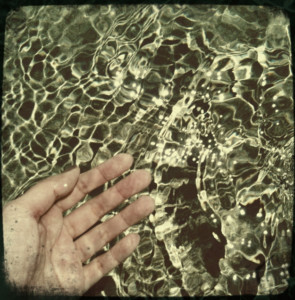Dispersible soils are those where the clay and fine silt particles (<0.005 mm) disperse into a state of separation into extremely fine colloidal units when exposed to water. These particles can remain suspended in water essentially forever because of common electrical charges on the colloidal surfaces, causing them to repel each other and stay in suspension. Stormwater runoff from unprotected dispersible soils on construction sites typically contains high levels of suspended solids (> 1,000 mg/L TSS,) is not unusual) and turbidity> 1500 NTU.
The failure of dispersed clays to settle is commonly exacerbated by wind-generated turbulence within sediment retention basins. Settlement of these suspended particles typically requires the application of a chemical agent, which neutralises the surface charges, allowing the particles to settle relatively quickly.
Two broad processes can be considered to help reduce suspended solids loads where a significant proportion of these are dispersible fines: coagulation and flocculation. In some situations, preliminary testing of water samples in a laboratory before discharge might be necessary to prove that the suspended solid content is below recommended levels, e.g. where the receiving waters are particularly sensitive.
The final application rate should be sufficiently high to permit removal of suspended solids and discharge of treated waters within an acceptable time without polluting waters with the agent itself. A rough field test that approximates an acceptable suspended solids content of 50 milligrams per litre is to fill a clear plastic or glass 65 mm diameter soft drink bottle with the water and hold it up to the light.
If seeing very clearly through the sample is not possible, it is probably above 50 milligrams per litre and needs further treatment. Note, though, that materials other than suspended solids can cause water to be discoloured and laboratory testing might be necessary anyway.
Gypsum (calcium sulfate) is a relatively insoluble settling agent (flocculating agent). Consequently, spreading it very evenly over the entire pond surface is essential for proper treatment of sediment-laden water. Normally, gypsum should be applied at a rate of about 30 kilograms per 100 cubic metres of stored water, however the effectiveness of gypsum to flocculate clay particles is based on purity and surface area. REGYP Superflocc products are made from fine ground high purity gypsum to increase the effective on site and reduce the application rates.



